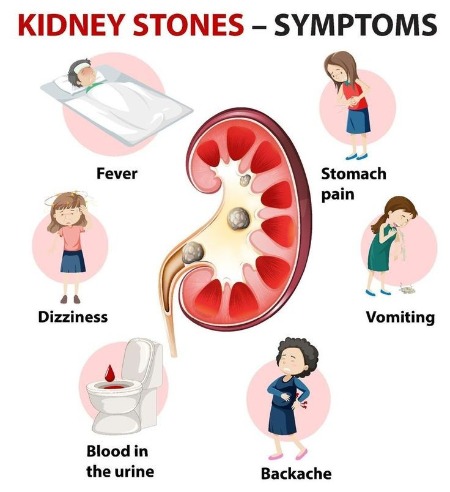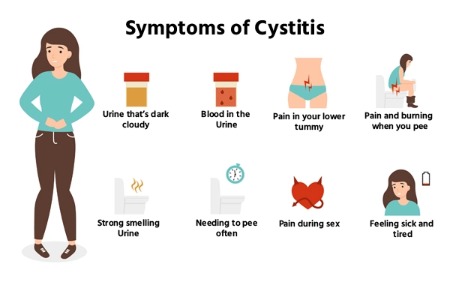Kidney & Urinary Disorders

Kidney & Urinary Disorders

What are Kidney Stones?
Kidney stones (also called renal calculi, nephrolithiasis, or urolithiasis) are hard deposits made of minerals and salts that form inside your kidneys.
Signs & Symptoms Of Kidney Stones
A kidney stone usually will not cause symptoms until it moves around within the kidney or passes into one of the ureters. The ureters are the tubes that connect the kidneys and bladder. If a kidney stone becomes lodged in the ureters, it may block the flow of urine and cause the kidney to swell and the ureter to spasm, which can be very painful. At that point, you may experience these symptoms:
- Severe, sharp pain in the side and back, below the ribs.
- Pain that radiates to the lower abdomen and groin.
- Pain that comes in waves and fluctuates in intensity.
- Pain or burning sensation while urinating.
- Other signs and symptoms may include:
- Pink, red or brown urine.
- Cloudy or foul-smelling urine.
- A persistent need to urinate, urinating more often than usual or urinating in small amounts.
- Nausea and vomiting.
- Fever and chills if an infection is present.
.jpg)
What is Urinary Tract Infection?
A urinary tract infection (UTI) is an infection of your urinary system. This type of infection can involve your:
- Urethra (urethritis).
- Kidneys (pyelonephritis).
- Bladder (cystitis).
Signs & Symptoms Of UTI
UTIs don't always cause symptoms. When they do, they may include:
- A strong urge to urinate that doesn't go away.
- A burning feeling when urinating.
- Urinating often, and passing small amounts of urine.
- Urine that looks cloudy.
- Urine that appears red, bright pink or cola-coloured (signs of blood in the urine).
- Strong-smelling urine.
- Pelvic pain, especially in women, in the center of the pelvis and around the area of the pubic bone.

What is Cystitis?
Cystitis is inflammation of the bladder that’s generally caused by a bacterial infection. Bladder infections occur when bacteria from the area between the vagina/penis and rectum (called the perineum) enter the urethra and travel into the bladder.
Signs & Symptoms Of Cystitis
The symptoms of a bladder infection are similar to what you will feel when you have a urinary tract infection (UTI). These symptoms can include:
- Frequent urination: You may feel the need to urinate more often. Some people also experience urgency (sudden desire to pee).
- Pain/burning with urination: During an infection, you may experience discomfort and pain in the suprapubic area and burning during urination.
- Dark or foul-smelling pee.
Other symptoms that can be linked to a more serious kidney infection include:
- Fever above 100 degree F.
- Chills or rigors (shaking).
- Vomiting.
- Flank pain.
